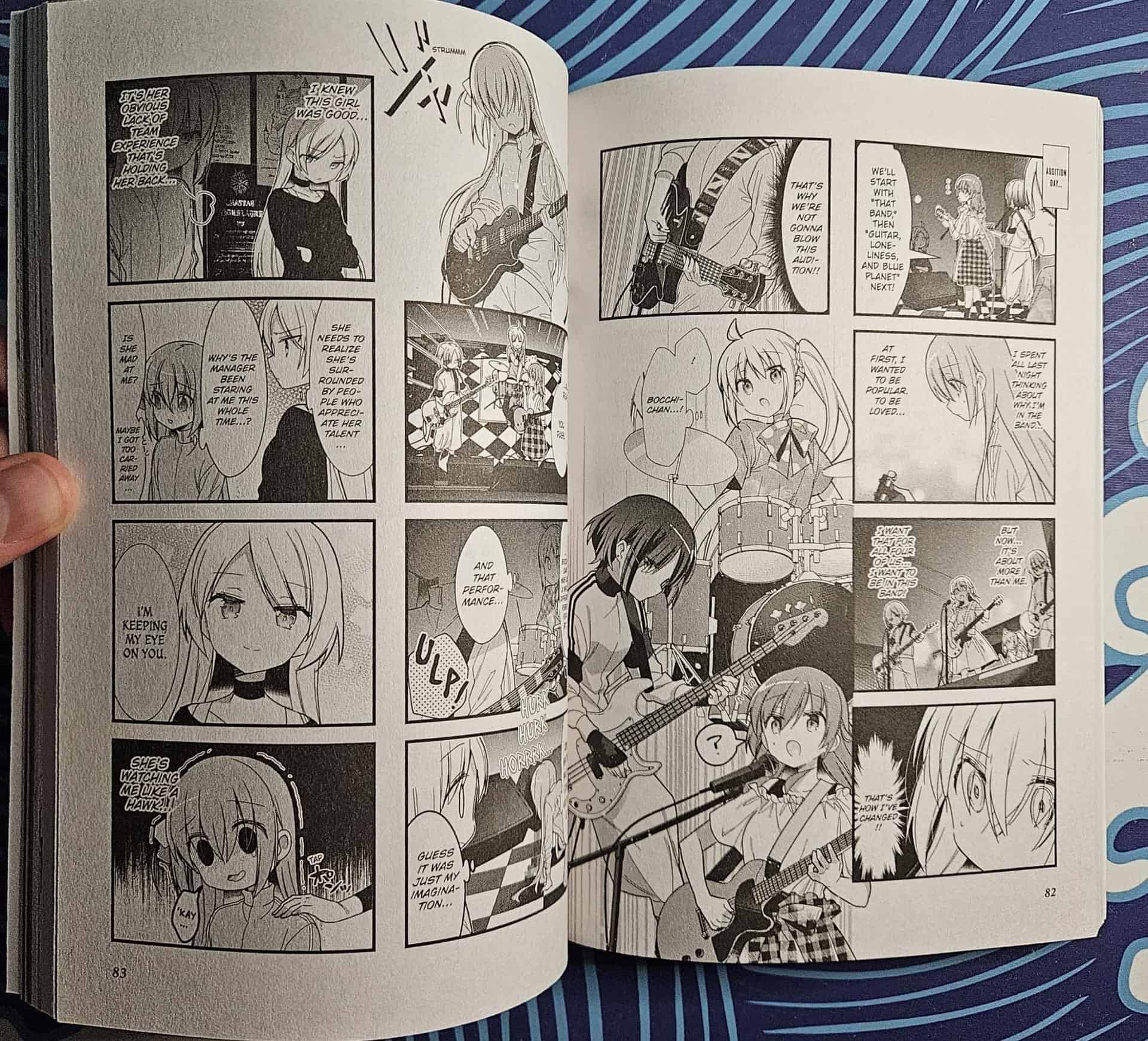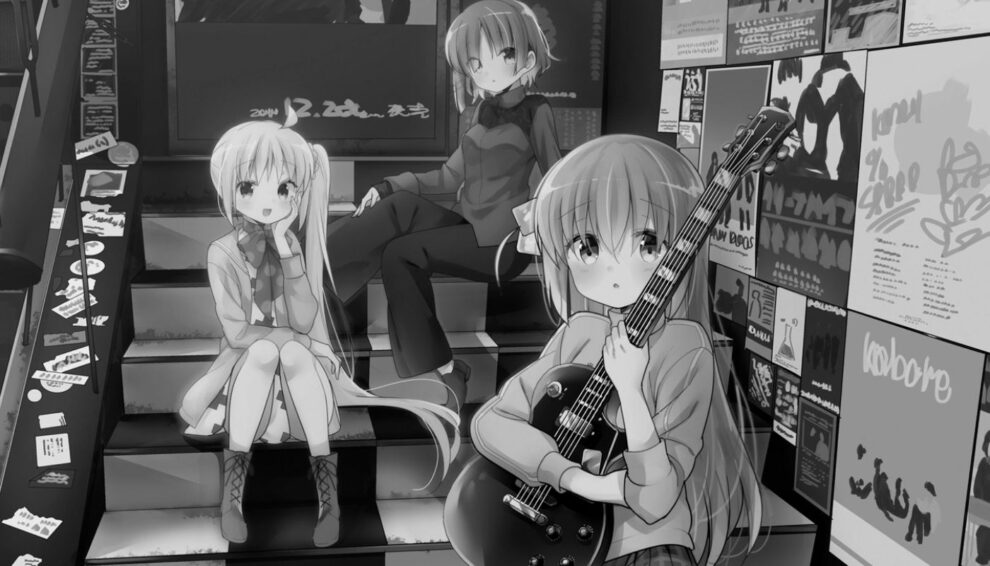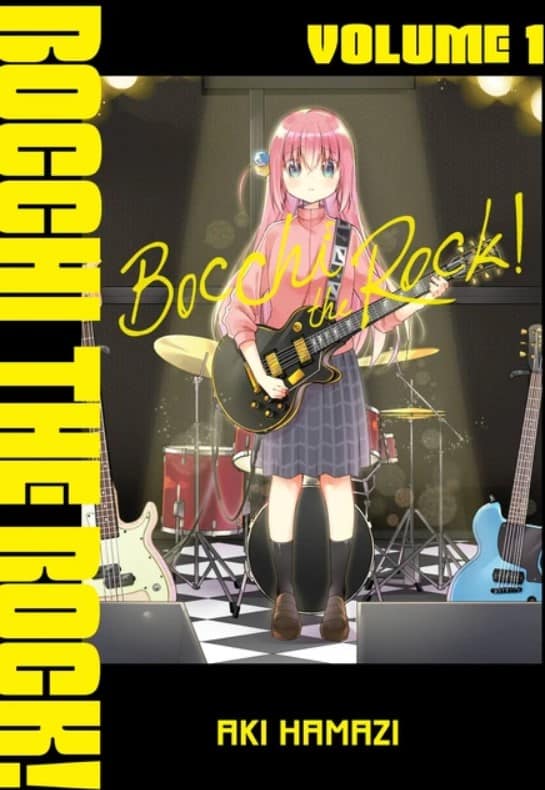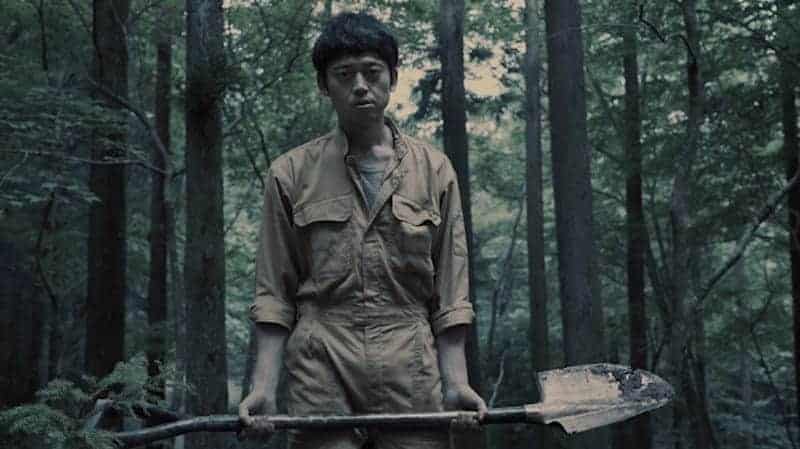“Hitori Gotoh just wants to be popular, but the thought of interacting with her classmates makes her fall to pieces. Her solution-become a rock legend so cool that people approach her instead! However, while spending all of middle school in her closet shredding on the guitar may have earned her anonymous internet fame, it did nothing for her social skills. Now a high schooler, Hitori's feeling ready to shrivel up and die-when she gets a sudden request to fill in for a band! It's like her wish came true-but does this most anxious of introverts have what it takes to perform in front of a live audience?!” (Yen Press)
“Bocchi The Rock!” has already seen its fair share of success, mainly in part to the adored anime series–there is even a Facebook page that posts every single frame in consequential order. Another element that has led to the success of Bocchi and her bandmates is the open fetishization of the characters. Turning off Safe Search and looking up the series is a wild ride, a fact that is common in many popular series but more prevalent in others. Finally, Bocchi and her crew have become memeable, with fans using the awkward expressions from the anime to make their memes. Essentially, “Bocchi The Rock!” is appreciated in many different facets, and looking at the long-awaited manga, it is easy to see the charm and how the series progressed to this point.
Most notably, the comedic wit and timing of Aki Hamazi play out wonderfully across the pages, with constant stings of teenage awkwardness making for a well-landed punchline. This is bolstered by overly expressive characters, with Bocchi in particular switching from joy to existential dread with comedic precision. The series succeeds, first and foremost, as a humorous observation of teenage awkwardness by cleverly using over-exaggeration.
Check also this video
Another endearing element of the book is how sincerely it conveys the passion for music. While the series focuses more on social interactions, Bocchi's passion and desire to hone her skills remain sincere. This becomes the driving factor for her stepping out of her comfort zone; without it, she would be a shut-in. Aki Hamazi's art further reflects this passion, and the connection to music is conveyed to be as crucial to the creator as their creation.

Unfortunately, there is one major downfall in “Bocchi The Rock!” that is difficult to overlook, and that is the structure of the series as a comic strip in the four-panel format. This stunts the series in a few ways, with the biggest being an uncomplimentary format for a longer narrative story. At points, the jokes feel forced, as if a punchline was needed, and most peculiarly, chapters will end mid-page. As a narrative story, the panel format seems like a crutch or a safety net for Aki Hamazi, allowing the work to exist in a constant set-up punchline format to take pressure off of telling a coherent story.
The other issue this format creates is it gives less space for the art of Aki Hamazi to impress. While this does not affect the sharp comedic timing and wit of the mangaka, there are various gorgeous panels within that become restricted due to the format. Yen Press has done a service to the release by printing it in a slightly larger volume, but even then, the work still feels restricted both visually and narratively.
Existing fans of “Bocchi The Rock!” won't be disappointed to get more of the girl and her band, and regardless of structure, there is a lot of entertainment to be found, thanks to the punchy humor. However, looking at the work objectively, it underwhelms compared to other comedies focused on awkward youth. In particular, and a close comparison in tone, one would be better suited to check out “No Matter How I Look at It, It's You Guys' Fault I'm Not Popular!” which nails the formula and looks sharper while doing it.















